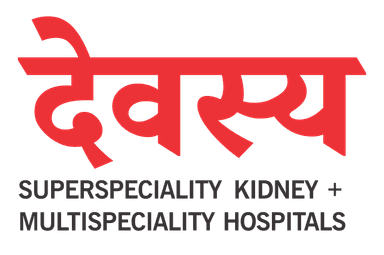Acute Kidney Injury Treatments & Surgery
How Devasya Hospital Helps to cure Acute Kidney Injury
Devasya Hospital is a beacon of excellence in the realm of Acute Kidney Injury treatment, offering comprehensive care and cutting-edge solutions to aid in kidney recovery. Led by a multidisciplinary team comprising nephrologists, urologists, critical care specialists, and dedicated nursing staff, the hospital takes a holistic approach to AKI treatment.
At the core of their expertise lies the provision of Temporary Renal Replacement Therapy (RRT). Devasya Hospital's advanced infrastructure and state-of-the-art facilities enable the swift initiation of RRT methods like hemodialysis, peritoneal dialysis, and continuous renal replacement therapy. Their emphasis on tailored treatment plans ensures individualized care, addressing specific patient needs and underlying causes of AKI.
The hospital's commitment extends beyond RRT, encompassing continuous monitoring, comprehensive patient education, and supportive care to facilitate kidney recovery. By prioritizing patient well-being and leveraging advanced medical technologies, Devasya, the best hospital for acute kidney injury consistently delivers exceptional care, making it a leading choice for those seeking effective treatment and management of Acute Kidney Injury.
FAQs
Acute Kidney Injury (AKI) refers to a sudden and rapid decline in kidney function, leading to the accumulation of waste products and electrolyte imbalances in the body. It manifests as a sudden decrease in urine output, fluid retention, fatigue, and can result from various causes, including decreased blood flow to the kidneys, direct kidney damage, or urinary tract obstructions.
AKI can be caused by prerenal factors like dehydration or blood loss, intrinsic factors such as severe infections or medications that damage the kidneys, or postrenal factors like urinary tract obstructions. Other causes include sepsis, certain medications, toxins, or trauma.
Diagnostic tests for AKI involve blood tests to measure creatinine and blood urea nitrogen (BUN) levels, urine tests to assess electrolytes and sediment, and imaging tests like ultrasounds or CT scans to identify any structural abnormalities in the kidneys or urinary tract. In some cases, a kidney biopsy may be performed.
Acute Kidney Injury is a sudden decline in kidney function that occurs rapidly over a short period, whereas chronic renal failure is a gradual and irreversible deterioration of kidney function over an extended period, often progressing over months or years.
Complications of AKI include electrolyte imbalances, fluid overload leading to swelling and pulmonary edema, accumulation of waste products causing uremia, and potential damage to other organs due to the body's inability to regulate fluid and electrolyte balance.
Preventive measures for AKI involve staying hydrated, avoiding medications or toxins that can harm the kidneys, managing conditions that increase the risk of AKI (such as diabetes and hypertension), and promptly treating infections or conditions that can potentially lead to AKI, thus minimizing the risk factors for its development.



